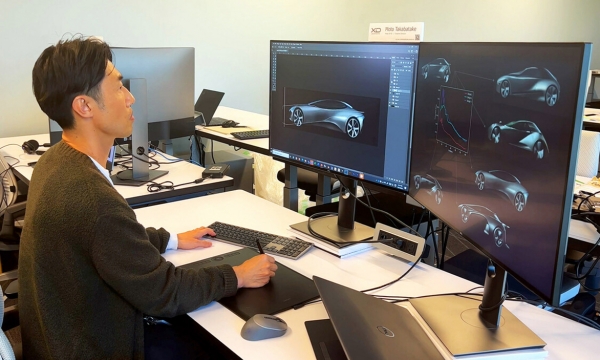Today, there are few things on humanity's mind as much as generative artificial intelligence. The thinking and creation of computers can radically change the structure and functioning of societies; The prospects are as promising as they are terrifying. However, while ordinary people mostly encounter artificial intelligence that writes texts, creates images and composes music, science is trying to use technology in more creative areas.
Such a field is the research and creation of innovative materials. Tailor-made artificial intelligence could theoretically combine and design thousands of new materials with remarkable properties and characteristics. However, experience shows the same as in other areas: some “recipes” created in this way simply do not work. In theory, only a small percentage of models designed at the atomic level could actually be produced – either because the idea is flawed in the first place, or because it would be too complex, time-consuming and expensive to work on.
The example provided by the Toyota Research Institute (TRI) perfectly illustrates the seriousness of the problem. After filtering out the thirty thousand that they considered possible to produce from the millions of theoretical combinations proposed by their advanced computers, they set to work. In two years, they were able to engage with twelve out of 30,000 candidates, and only one (!) of them achieved actual, tangible results. This doesn't sound very promising at first, and the science is only just beginning the process. The number of potential “new materials” is increasing day by day, while the number of technological and human resources available for their implementation is limited. Therefore, statistically speaking, the chances of laboratory work being successful in achieving results get worse.
Realizing this, the Toyota Research Institute has offered a special scholarship to the scientific world: they are looking for ideas that can be used efficiently and accurately to determine whether a given previously theoretical physical structure can be implemented (and not just at the laboratory level, but developed into mass production) , or spending unnecessary time and money on experiments.
In the project, four selected teams will work with TRI researchers in the hope that by combining their own software or hardware, physical or data-based ideas with the expertise of Toyota scientists, they can achieve a breakthrough in the field. For the two-year first phase of the project, TRI will allocate a quarter of a million dollars per group and per year, for a total of $2 million (725 million HUF). If the theoretical solutions developed here prove promising, applicants can spend at least another two years to realize their ideas in practice, even by bringing an innovative material to the gate of serial production.
The budget for this second phase has not yet been determined by the Toyota Research Institute. However, in light of the fact that TRi's parent company, Toyota Motor Corporation, spends $1 million (!) every hour around the world on R&D programmes, the research institute will certainly be able to finance any project, as it has long promised to be Viable.
Tender applications are open until June 1 of this year.
Follow us for more car content in Facebook also!












































